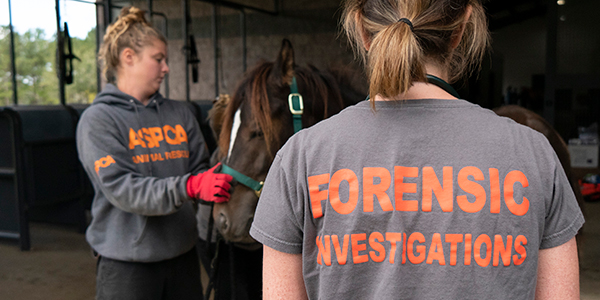The program provides a cross-cutting curriculum in forensic science with coursework in business and public administration that is designed to provide professional development opportunities for supervision and management. Students will gain advanced, graduate-level forensic science knowledge the ability to apply it in an operational forensic organization. The courses use multiple media and case studies in an asynchronous, flexible online delivery format with practical exercises.
Ideal Candidates
- Professionals currently working in federal, state or private crime laboratories, medical examiner’s laboratories
and - Professionals interested in STEM education
- Individuals pursuing an exciting and growing career in areas
like: DNA/biology, forensic toxicology, medicolegal death investigations, seized drugs, explosives, fire debris, gunshot residues, document examinations, forensic geology, wildlife forensicsand trace evidence
Unique Features
- 16-month cohort-based program
- Online courses with practical skills including profession-based exercises
- Multidisciplinary/interdisciplinary courses to make students competitive
on job market - Develops professional skills: communication, expert testimony, forensic science, leadership, business and management
Programs

The Professional Science Masters (PSM) in Forensic Science Management program is designed to advance students’ forensic science knowledge and provide the necessary administrative skills related to managing forensic organizations.

The Professional Science Master’s (PSM) in Veterinary Forensic Science Investigation program is designed in partnership with the American Society for the Prevention of Cruelty to Animals (ASPCA) to provide students with a strong foundation in forensic science knowledge, specialized skills in veterinary medicolegal investigations, and necessary management skills.
While graduates of forensic science programs tend to be prepared with scientific skills, they may lack the practical experience and critical thinking skills necessary to be ready to provide immediate support in the laboratory upon hiring. There is a need to bridge the gap between the goals of the academic programs and those of the forensic laboratories.—National Institute of Justice Report to Congress for Needs Assessments of Forensics Laboratories and Medical Examiner/Coroner Offices
Admissions
All application materials should be submitted to the Office of Graduate Admissions via the online Graduate Application. Use the graduate admission checklist to get started.

